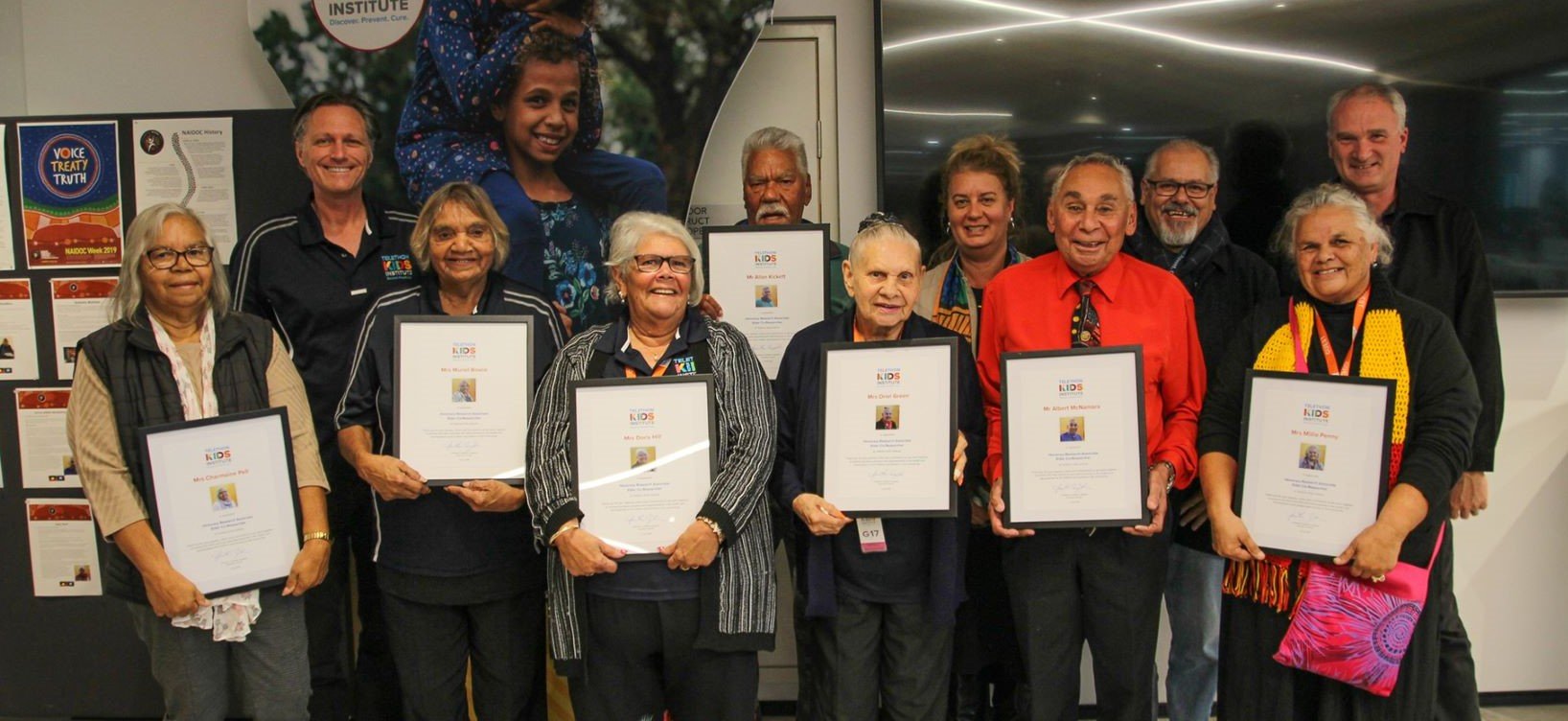Search
Research
Characterization of a novel JNK (c-Jun N-terminal kinase) inhibitory peptideAn improved understanding of the roles of protein kinases in intracellular signalling and disease progression has driven significant advances in protein...
Research
Living near agricultural pesticide applications and the risk of adverse reproductive outcomes: A review of the literatureOver the last decade, there has been growing concern about the possible health effects, including a number of adverse reproductive outcomes, from pesticide...

Facilitate research interest & opportunities that involve Aboriginal families & communities and build the capacity and development of Institute researchers

A series of fact sheets have been prepared on a number of issues relating to Indigenous suicide prevention, from our investigations and roundtable discussions.
Strengthening the capacity of Aboriginal children, families and communities
Research
KAMS MOUAs part of the discussions with Kimberley Aboriginal Medical Service (KAMS) to establish the Broome site of the WAAHKN it has been agreed to establish...
Research
BreastfeedingConvenient, readily available and helping create a close and loving bond between baby and mother, breastfeeding is highly regarded for optimising infant health and preventing chronic disease in adulthood.

The Ngulluk Koolunga Ngulluk Koort (Our Children, Our Heart) Project grew out of a bold vision to harness the wisdom of Aboriginal Elders to improve outcomes for Aboriginal children, producing a suite of Elder-led, culturally appropriate and empowering initiatives that are making a difference.

Two international trials led by The Kids Research Institute Australia’s Neonatal and Infection Immunity Team are tackling the urgent need for simple and safe interventions that can help prevent the adverse long-term effects of infections in extremely preterm babies.
Research
Plasma testosterone concentration is correlated with circulating immune cell abundance in transgender young people on gender-affirming hormone treatmentSex hormones, such as oestrogen and testosterone, display significant immune modulatory properties. This is highly relevant for transgender (trans) people who undergo gender-affirming hormone (GAH) treatment. However, only a limited number of studies have evaluated the immunological impact of GAH treatments, and almost none have assessed the impact in trans young people.
